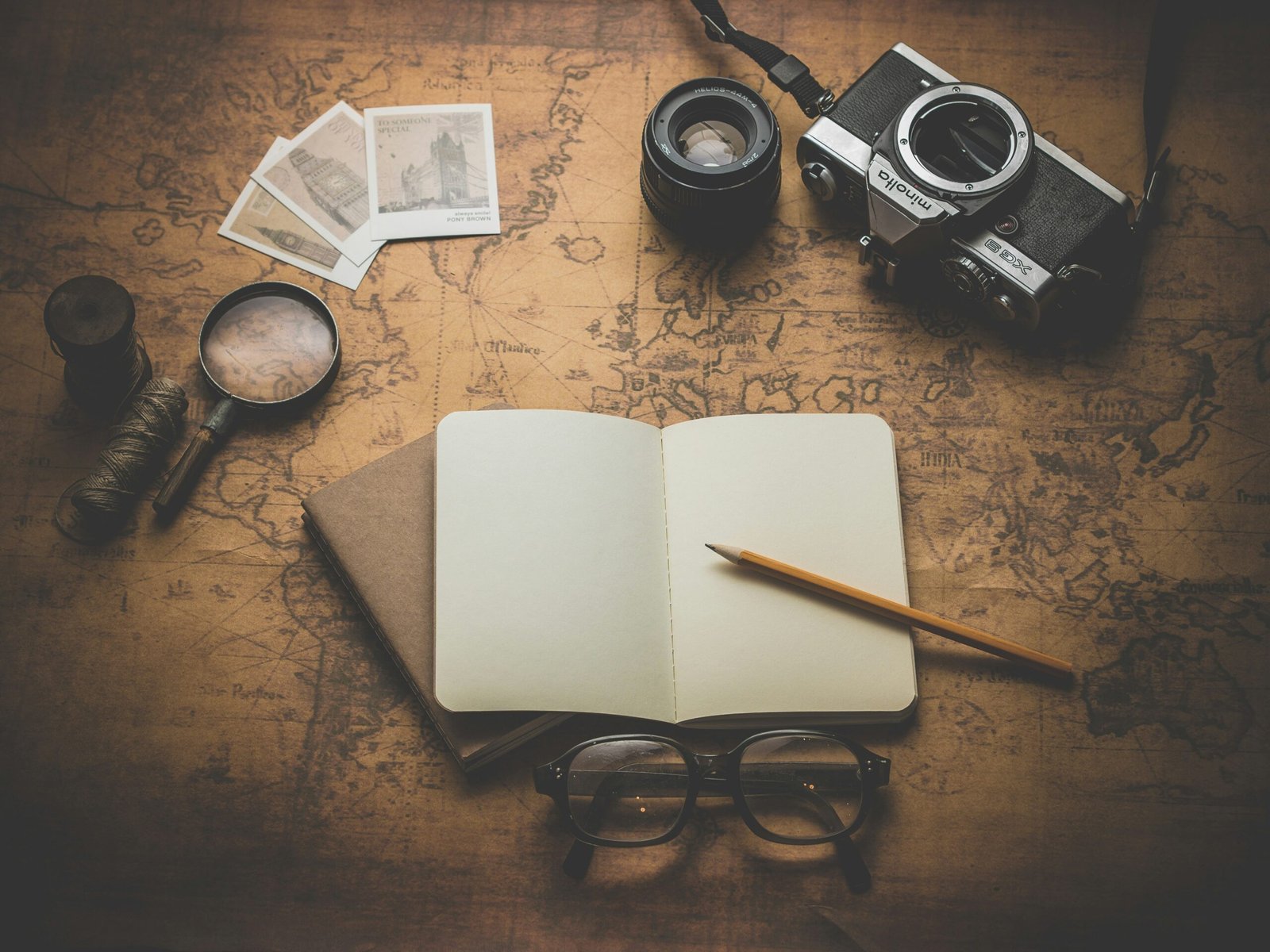Introduction: The Concept of Comfort Zones
A comfort zone is a psychological state where an individual feels at ease, familiar, and in control of their environment. This state is characterized by routine and predictability, leading to a sense of safety and security. People tend to stay within their comfort zones because they provide a buffer against stress and anxiety, offering a stable foundation for daily activities. However, while this sense of stability is beneficial, it can also have significant downsides.
Remaining within the confines of a comfort zone can limit personal growth. When individuals are not exposed to new challenges or unfamiliar situations, they miss out on opportunities to develop new skills, perspectives, and experiences. This stagnation can lead to a lack of innovation and creativity, as well as a diminished capacity to adapt to changing circumstances. Moreover, staying within a comfort zone can result in missed opportunities that could have otherwise enriched one’s personal or professional life.
Traveling serves as a powerful catalyst for stepping outside these boundaries. It thrusts individuals into new environments, cultures, and experiences, challenging their preconceived notions and habitual ways of thinking. By navigating unfamiliar terrains, interacting with diverse people, and adapting to different customs, travelers are compelled to expand their horizons and confront the unknown. This process not only fosters personal development but also enhances resilience and adaptability.
In essence, stepping out of one’s comfort zone through travel can lead to profound personal transformation. It encourages individuals to embrace uncertainty and to view challenges as opportunities for growth. The experiences gained from traveling not only broaden one’s understanding of the world but also contribute to a deeper sense of self-awareness and confidence. By venturing beyond the familiar, individuals can unlock new potentials and enrich their lives in ways they never imagined.
Exposure to New Cultures and Traditions
Traveling to different parts of the world inherently involves encountering a variety of cultures, traditions, and lifestyles that may be completely foreign. This exposure often begins with an initial discomfort; unfamiliar customs and language barriers can create a sense of unease. Navigating through new social norms, whether it’s understanding the etiquette of Japanese bowing or the communal dining practices in Ethiopian culture, often challenges one’s preconceived notions and habitual behaviors. However, this initial discomfort is a crucial part of stepping out of one’s comfort zone.
One immediate benefit of such exposure is an increase in cultural awareness. By immersing oneself in a different environment, travelers gain firsthand experience of diverse ways of life. This can lead to a deeper understanding and appreciation of the host culture, fostering a broader worldview. For example, participating in local festivals, visiting historical sites, and engaging with local communities provide invaluable insights that are not easily learned through books or media.
Moreover, traveling cultivates empathy. As travelers witness the daily lives and challenges of people from different backgrounds, they often develop a more compassionate perspective. This empathy extends beyond the immediate travel experience and influences one’s interactions and relationships back home. Understanding the complexities and beauty of another culture encourages a more inclusive and accepting attitude towards diversity.
Adaptability is another significant benefit of exposure to new cultures. The ability to adjust to new environments, communicate despite language barriers, and navigate unfamiliar social norms enhances one’s problem-solving skills and resilience. This flexibility is not only beneficial while traveling but also in personal and professional contexts. The challenges faced while integrating into a different culture often translate into a more adaptable and resourceful mindset in everyday life.
In essence, traveling beyond one’s familiar surroundings serves as a powerful tool for personal growth. The exposure to new cultures and traditions, though initially challenging, ultimately enriches one’s perspective, fosters empathy, and enhances adaptability, making the journey well worth the initial discomfort.
Navigating Unfamiliar Environments
Traveling often necessitates navigating new and sometimes challenging environments, compelling individuals to step out of their comfort zones. Whether it involves deciphering complex public transportation systems, interpreting maps in unfamiliar languages, or adapting to unexpected weather conditions, these experiences can be both daunting and enlightening. The inherent challenges of navigating unfamiliar environments foster problem-solving skills, resilience, and self-confidence.
Figuring out public transportation in a foreign city, for instance, requires not only an understanding of the local language but also the ability to make quick decisions. The process of purchasing tickets, identifying the correct routes, and ensuring timely arrival at destinations can be overwhelming. However, successfully navigating these situations enhances one’s analytical skills and builds confidence in one’s ability to handle unforeseen circumstances.
Deciphering maps and directions in an unfamiliar setting further contributes to personal growth. Travelers often find themselves in situations where they must rely on their instincts and resourcefulness to find their way. This constant need to adapt and think on one’s feet improves cognitive flexibility and hones decision-making skills, which are crucial for personal and professional development.
Dealing with different weather conditions also plays a significant role in stepping out of one’s comfort zone. Travelers might encounter climates that are drastically different from what they are accustomed to, necessitating quick adaptations in clothing and daily routines. This adaptability not only builds resilience but also teaches travelers to be prepared for any situation, reinforcing the importance of flexibility and foresight.
In essence, navigating unfamiliar environments during travel serves as a valuable exercise in building problem-solving abilities, resilience, and self-confidence. The challenges faced and overcome during these journeys contribute significantly to personal growth, preparing individuals to tackle future obstacles with greater ease and assurance.
Overcoming Language Barriers
Traveling to places where the native language differs from one’s own presents a unique set of challenges and rewards. One of the primary obstacles travelers face is the difficulty of communication. This situation necessitates the learning of new phrases and expressions, pushing individuals out of their comfort zones and into a realm of linguistic exploration. Engaging with a foreign language, even at a basic level, can be both daunting and exhilarating.
The initial challenge often lies in grasping essential phrases for everyday interactions, such as ordering food, asking for directions, or making simple purchases. This learning process can be accelerated through immersion, where travelers are compelled to listen, practice, and adapt quickly. Utilizing language apps, phrasebooks, or even enrolling in short language courses can significantly enhance one’s ability to communicate effectively.
Non-verbal communication also becomes a vital tool in overcoming language barriers. Gestures, facial expressions, and body language can convey meaning when words fail. Travelers often find themselves becoming adept at interpreting and using these non-verbal cues, fostering a deeper sense of connection with locals despite the language gap. This reliance on non-verbal communication not only aids in immediate interactions but also enriches the overall travel experience.
Resourcefulness is another critical aspect of navigating language barriers. Travelers may resort to creative methods such as drawing pictures, using translation apps, or seeking help from bilingual individuals. These strategies highlight the adaptability and ingenuity required to thrive in unfamiliar linguistic landscapes. Each successful interaction, no matter how small, brings a sense of achievement and boosts confidence.
Ultimately, the process of overcoming language barriers while traveling is a testament to human resilience and the innate desire to connect. The rewards of such efforts are manifold, including improved language skills, increased cultural awareness, and a profound sense of accomplishment. By stepping out of their linguistic comfort zones, travelers not only enhance their communication abilities but also enrich their global perspective.
Meeting New People and Forming Connections
Traveling inherently involves stepping into unfamiliar territories, not just geographically but socially as well. One of the most compelling aspects of travel is the opportunity to meet new people and form connections that can significantly enrich your experience. Staying in hostels, for instance, provides a communal living situation that naturally encourages interaction among travelers. Whether it’s sharing a meal in a hostel’s common room or swapping travel stories, these interactions often lead to meaningful connections.
Group tours offer another excellent avenue for social engagement. When you join a group tour, whether it’s a day trip or a multi-day expedition, you are placed in a setting where cooperation and interaction with fellow travelers become necessary. This can be initially intimidating, especially for introverted individuals, but it inevitably paves the way for camaraderie and even lifelong friendships. The shared experiences of exploring new cultures, facing challenges together, and celebrating small victories can create strong bonds among group members.
Engaging with locals is yet another enriching dimension of social interaction while traveling. Whether it’s through a brief conversation at a local market or a more immersive experience like a homestay, interacting with residents of the places you visit provides invaluable insights into their way of life. These interactions can be daunting, especially when language barriers exist, but they are often the most rewarding. Through these exchanges, travelers gain new perspectives, learn about cultural nuances, and often receive invaluable tips and recommendations that enhance their travel experience.
Forming connections with people from diverse backgrounds enriches not only your travel experience but also contributes to your personal growth. These encounters challenge preconceived notions and broaden your worldview, making you more adaptable and open-minded. Ultimately, the friendships and connections you make while traveling can become some of the most treasured aspects of your journey, leaving lasting impressions that extend well beyond your time on the road.
Trying New Foods and Activities
Traveling inherently invites individuals to step out of their culinary and activity comfort zones. When venturing into new territories, tourists often encounter an array of exotic foods that are far removed from their usual diet. The initial hesitation to try unfamiliar dishes is a common experience. Many travelers are confronted with the challenge of overcoming preconceived notions about taste and texture. However, the act of savoring local delicacies can turn into a rewarding adventure. Whether it’s sampling street food in Southeast Asia or indulging in traditional European cuisine, the flavors can offer a unique insight into the cultural fabric of a destination.
Beyond the culinary landscape, traveling also encourages participation in local customs and traditions. Engaging in cultural activities such as traditional dance, music, or festivals can be both enlightening and exhilarating. These experiences provide a deeper understanding and appreciation of the community’s heritage, fostering a sense of connection and respect. Moreover, the joy derived from immersing oneself in local customs often surpasses any initial discomfort or apprehension.
Adventure sports further exemplify how traveling pushes boundaries. Activities such as bungee jumping, scuba diving, or paragliding present opportunities for thrill-seekers to conquer their fears. The adrenaline rush and the sense of accomplishment that accompany these activities can be profoundly transformative. Overcoming physical and mental challenges in a foreign environment not only builds confidence but also broadens one’s perspective on what is possible.
Ultimately, the process of trying new foods and engaging in unfamiliar activities is an integral part of the travel experience. The initial hesitation gives way to joy and a sense of achievement, leaving travelers with lasting memories and a renewed sense of self. Embracing these opportunities can lead to personal growth and an enhanced appreciation for the diverse world we live in.
Dealing with Unpredictable Situations
Traveling is inherently unpredictable, often presenting a range of unforeseen events that test one’s adaptability. Flight delays, lost luggage, and unexpected changes in plans are common occurrences that travelers must navigate. Such challenges require a high degree of flexibility, quick thinking, and emotional regulation. For instance, a delayed flight can disrupt a meticulously planned itinerary, necessitating swift rearrangement of subsequent travel plans. Similarly, discovering that your luggage has been misplaced demands composure and prompt action to retrieve essentials or procure replacements.
These unpredictable situations serve as practical exercises in managing uncertainty. Adaptability becomes a crucial skill as travelers learn to adjust their expectations and find alternative solutions. Quick thinking is often essential when making decisions on the fly, whether it involves rebooking a flight or finding new accommodations. Emotional regulation, particularly the ability to remain calm under pressure, is equally important. By maintaining a level-headed approach, travelers can more effectively address the challenges they face without becoming overwhelmed by stress.
Moreover, the ability to cope with unpredictability in travel has broader implications for one’s personal and professional life. The same skills that help a traveler navigate a foreign city without a preplanned route can also aid in handling unexpected work assignments or personal crises. Learning to embrace uncertainty and respond constructively can enhance overall resilience. This adaptability can lead to improved problem-solving abilities and a greater capacity for emotional regulation in various aspects of life.
Thus, while the unpredictable nature of traveling may initially seem daunting, it ultimately fosters growth and resilience. By stepping out of their comfort zones and facing these challenges head-on, travelers not only enhance their ability to cope with uncertainty during their journeys but also gain valuable skills that benefit them long after their travels have ended.
Conclusion
Traveling is a profound experience that allows individuals to step out of their comfort zones and engage with the world in ways that foster personal growth. Throughout this blog post, we have explored how traveling challenges preconceived notions, encourages adaptability, and nurtures resilience. Whether it’s navigating through unfamiliar cities, interacting with diverse cultures, or handling unexpected situations, each experience contributes to a richer, more nuanced understanding of the world and oneself.
Embracing the discomfort that often accompanies travel can lead to significant personal development. It compels travelers to develop problem-solving skills, enhances their emotional intelligence, and broadens their perspective. These experiences are invaluable, providing lessons that extend far beyond the journey itself and into everyday life.
Frequently Asked Questions (FAQs)
Q1: How can I ensure my safety while traveling?
A: Safety is paramount when traveling. Always research your destination beforehand, including understanding the local laws and customs. Keep copies of important documents, stay aware of your surroundings, and avoid risky areas, especially at night. Utilizing travel insurance can also provide peace of mind in case of emergencies.
Q2: How should I prepare for cultural differences?
A: Preparing for cultural differences involves research and openness. Learn basic phrases in the local language, understand the societal norms, and respect traditions. Being open-minded and non-judgmental can help you navigate cultural differences more smoothly and enrich your travel experience.
Q3: What advice do you have for first-time travelers stepping out of their comfort zones?
A: For first-time travelers, start with destinations that are slightly outside your comfort zone but still manageable. Plan your trip but leave room for spontaneity. Pack light, stay flexible, and be prepared for unexpected challenges. Most importantly, embrace the experience with a positive attitude and an eagerness to learn.
By addressing these common concerns and understanding the benefits of stepping out of one’s comfort zone, travelers can embark on their journeys with confidence. Traveling is not just about visiting new places; it’s about growing as an individual and gaining a deeper appreciation of the world’s diverse tapestry.



